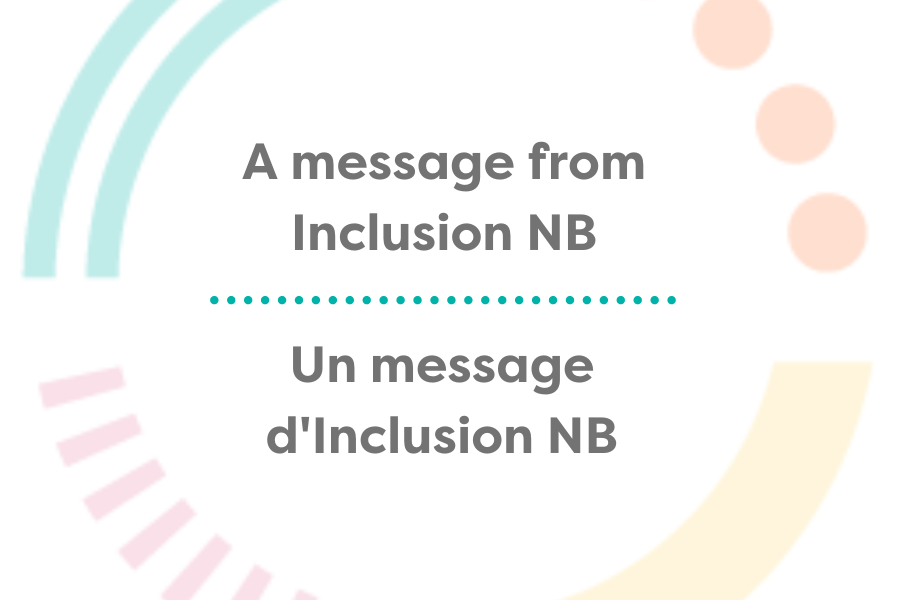
On October 21st New Brunswickers experienced a true change election, with not only a new government and Premier, but also many new faces among the MLA ranks. Change elections bring an abundance of both new opportunities for collaboration, as well as challenges to ensure our priorities are addressed within the noise of other government priorities. We now move from the pre-election phase of our policy work to post-election engagement.
I know the connections we made with all parties was essential in promoting our priorities and informing our community leaders. We have many strong relationships with the new, governing Liberals, as well as with civil servants across all departments, which will allow us to continue to engage effectively with the provincial government. Along with our policy team, we are in a strong position to help affect change over the next 4 years.
With the results of the 2024 Provincial Election now known, I wanted to keep you informed of our next steps in government relations and advocacy. You’ll see below some key priorities the New Brunswick Liberal Party (NBLP) released several weeks ago in their election Platform. These priorities align with what Inclusion NB identified in our work leading up to the 2024 Provincial Election, which you can find here.
Affordability
Current Situation: Many New Brunswickers with an intellectual or developmental disability rely on Social Assistance for their income, yet they live in deep poverty. New Brunswick’s Social Assistance rates are the lowest in the country.
From the NBLP Platform:
- Explore a plan for a basic income for New Brunswickers living with disabilities.
- Increase social assistance rates given the rising cost of food and housing, while ensuring regulations are not penalizing recipients.
- Increase the capacity of New Brunswickers receiving social assistance to participate in the workforce without financial penalty or loss of benefits.
- Support unemployed and underemployed New Brunswickers to upskill the labour force.
Did you know? 70% of New Brunswickers with an intellectual or developmental disability are unemployed or underemployed
Of Special Note – What’s Happening Federally:
In June of 2023, the Government of Canada passed the new Canada Disability Benefit Act. This creates an additional federal benefit of $200 per month for eligible Canadians, expected to be implemented by June of 2025. Before the election, Inclusion NB reached out to all parties to see if they would demonstrate national leadership by committing to exempt the upcoming Canada Disability Benefit as a source of income for those eligible for provincial benefits, should they form government. The NBLP responded and stated they would.
Housing Affordability and Inclusivity
Current Situation: In June of 2023, a provincial housing strategy was released and outlined new initiatives aimed at making housing more affordable and accessible for New Brunswickers. However, the strategy did not articulate how people with a disability will benefit. There is more to housing than accessibility. Housing Accessibility addresses the physical and sensory accommodations that many people require to live in community. Equally important is Housing Inclusivity. A housing situation is inclusive when the residence is a home-by-choice, and not the result of forced congregation of people in a housing unit, development, or neighbourhood as the sole option.
From the NBLP Platform:
- Provide funding for safety and accessibility retrofits for New Brunswick seniors and people with disabilities who wish to stay in their homes.
- Work directly with municipalities and community groups already grounded in a housing-first approach and support their expansion.
- Immediately review the recommendations of the 2024 reports from the Office of the Child Youth, and Seniors’ Advocate and make progress towards fixing our social policy capacity and making New Brunswick children and seniors more safe and secure.
From the Advocate’s Report on Long-Term Care released in March 2024: “Currently in New Brunswick there are 1,863 adults with disabilities living in special care homes. How many of the 1,863 adults with a disability are… trapped in a system that over supports what their needs are, while limiting connection to their community?”
These are not seniors. They are working-age adults and this must change.
Better Access to Inclusive Education – Policy 322
We need to focus on how we support the education system, including our teachers, schools, and classrooms to meet the needs of all children. There has been significant progress in schools where there are adequate, diverse supports in the form of trained paraprofessionals such as Behaviour Intervention Mentors, Speech Language Pathologists, Social Workers, etc.
From the NBLP Platform:
- Support inclusive education for all students by reviewing class composition and identifying and filling the staffing, training, and resourcing gaps impacting the effective implementation of Policy 322.
Proper resourcing has been an issue since the implementation of Policy 322, and we run the risk of moving backwards to a time of less inclusiveness if we do not address the systematic barriers that are preventing full inclusion.
We are optimistic about these priorities and will be reaching out to the newly elected MLAs and Premier-Elect to ensure this momentum continues.
As ambassadors for inclusion in this province, we know you will all continue advocating in your community and share these messages to keep building our movement across New Brunswick.
Sincerely,
– Jake Reid, Executive Director of Inclusion NB
